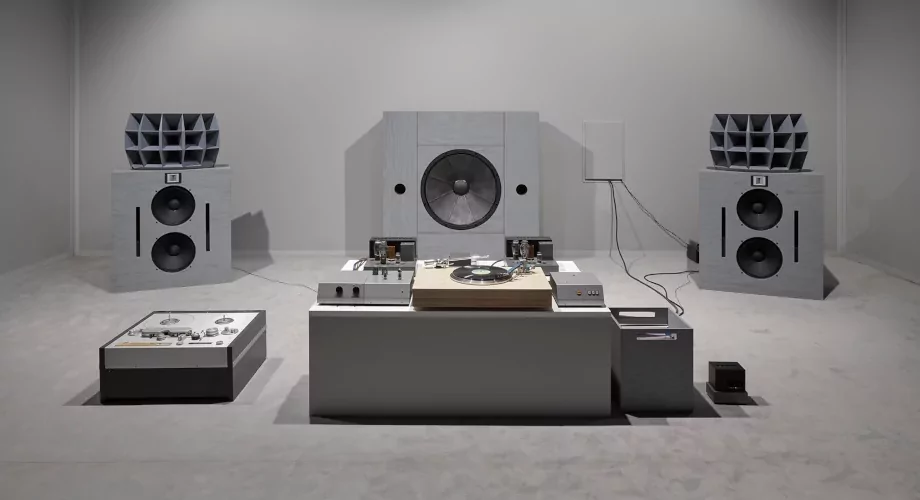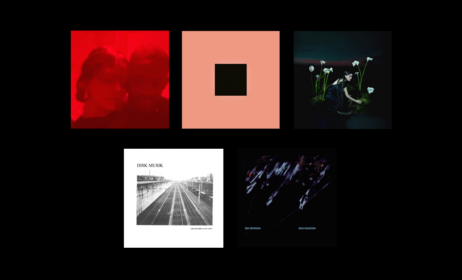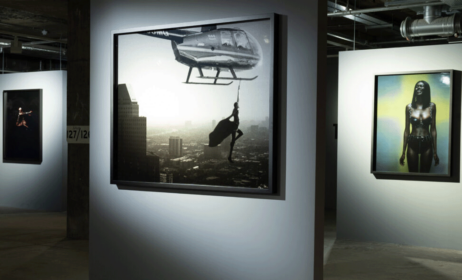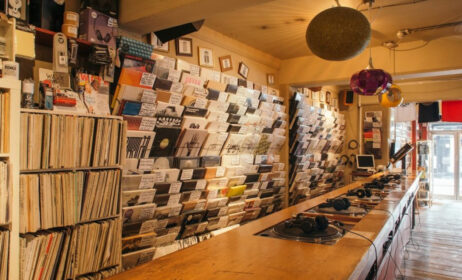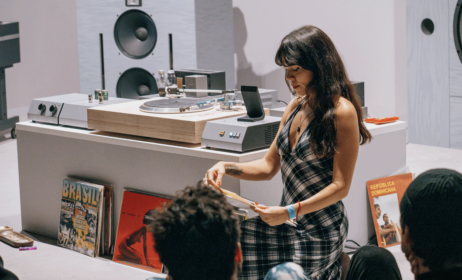Published on
February 27, 2023
Category
Features
Permanent Rotation is a series in which producers, DJs, and musicians go deep on the albums that have inspired them.
Terri McQueen is better known as Whodat, a first-rate Detroit selector, producer and purveyor of deep, soulful house music. With releases on Uzuri, Workshop, and a recent appearance on Theo Parrish’s DJ-Kicks, Whodat is one of Detroit’s living treasures and a favourite among discerning crowds from her home city to as far as Germany and Japan.
Terri McQueen is speaking to me via Zoom from her basement/studio in Detroit, where a wall of records is stacked behind her. It’s just a small portion of her collection, which is spread across most rooms of her house. “I don’t know how many [records] I have,” she says. “I’m starting to realise that it’s a lot.”
The size of her stash makes sense when you learn she’s been collecting since she was just five years old. She was six when she heard Kraftwerk’s Computer World for the first time while hanging out at her older cousins’ place in Detroit. McQueen holds up a green copy of the record and says, “this is probably the one we were listening to when I was a kid.” McQueen, who also owns a clear copy of the record, inherited her cousin’s collection after he passed.
There was always music playing at her cousins’ place, where McQueen spent a lot of time growing up. “I remember distinctly my cousin and her best friend at the time used to do dance routines in the living room,” McQueen says. “No one was really DJing or anything like that, they’d just play records. And then somebody also probably had the cassette, maybe playing it from a boombox.” At the time, you could also hear legendary local DJ The Electrifying Mojo playing tracks from Computer World on the radio.
It was “so different” to anything McQueen had heard before—especially the Michael Jackson and Prince records that were huge in Detroit at the time. “Everyone was listening to all this disco razzle-dazzle stuff and then this came along and it was like—boom!—everything went dark and then the stars came out,” she says. Where songs on the likes of Off The Wall announced themselves with drum fills, bass riffs and glitzy intros, Kraftwerk kicked off tracks with “no rhythm, nothing, just the music starting,” and created space in their music where other artists rushed to fill it. The band’s sense of restraint is something that might have subconsciously seeped into her own productions, McQueen says, alongside the level of detail and dynamics in Kraftwerk tracks. “They’re always having little things bouncing around in the background and certain passages repeating,” McQueen says. “It’s bubblegum poppy but very different from the bubblegum pop we’re used to hearing.”
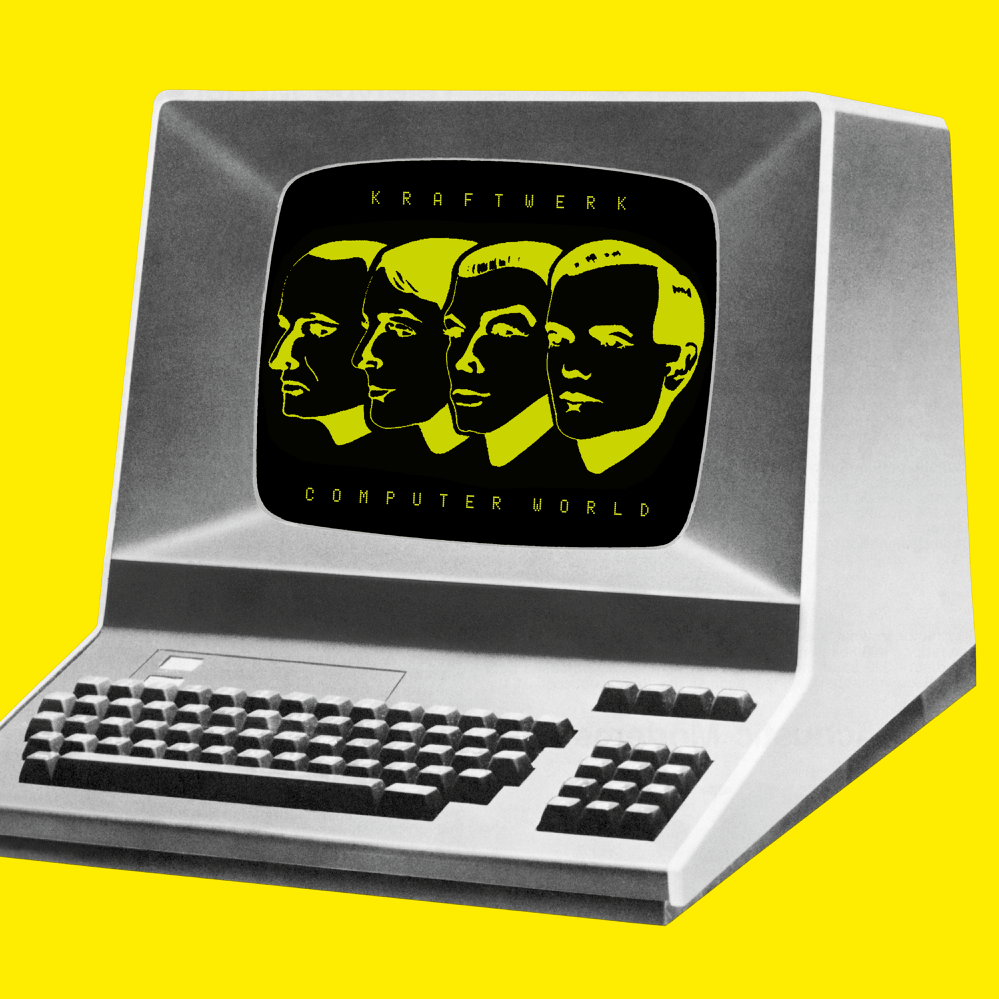
A couple of years after McQueen first heard Computer World, someone gave her the green Pocket Calculator 7-inch, and it quickly became her favourite track on the record. Captivated and intrigued, a pint-sized McQueen demanded to know what she was hearing. “I was like, ‘Yo, what is this? What are they saying? Are they speaking in another language? Are those numbers? Are they speaking Japanese?’ And no one would answer me. They were just like, ‘Can’t you just listen to the damn song?!’” McQueen chuckles.
“‘Computer World’” was another favourite, especially “those crazy whispers where they take most of the music out,” McQueen says, imitating a crackling sound, “and that bit right before the bass hits.”
The album art featured Kraftwerk photographed with slick, Lego men hairstyles and dressed in matching shirts and ties, leading McQueen to believe the band was made up of four Ken dolls. “That’s probably all I could associate them with, being that age,” she says. The computer theme was also a source of fascination. Computers were not yet a household item in 1981. Still, McQueen’s cousin owned one of the earliest video games and the sonic and visual aesthetic of Computer World represented an exciting future.
Sometimes McQueen will play a Kraftwerk track when DJing, usually because she wants to hear it on a good sound system. But the response can be overwhelming, she says, especially when the crowd is hearing the tracks for the first time. “When you play it for someone else, they’re like, ‘Whoa. That was crazy!’ So you have to be careful,” McQueen says. “When they react more than you anticipate, you’re like, ‘I knew it was gonna be cool but damn, I wasn’t ready for that!’”
Her fandom for the record today is just as pure as it was when she was a child. McQueen doesn’t study Kraftwerk’s production techniques and doesn’t really know or care what equipment they used to make the record. “The production style, I just always loved it. I love how it makes me feel when I hear it,” she says. “It just makes you happy when it comes on, you know?”
Words by Annabel Ross

